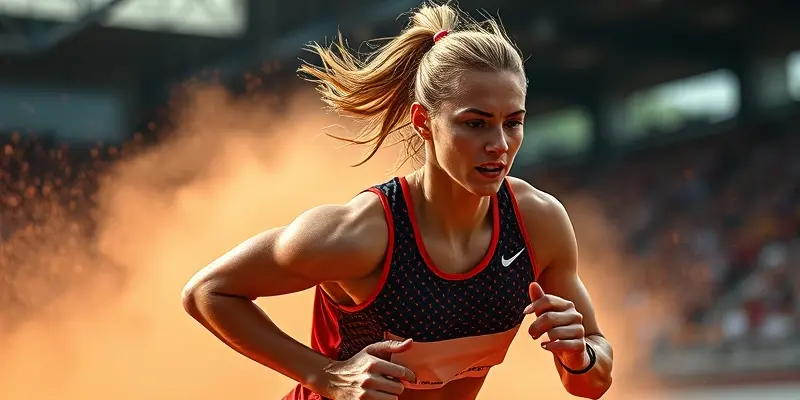Carissa Moore’s Playbook: How Resilience and Smart Recovery Fuel Champions
Whether you’re lacing up sneakers for your first 5K or pushing for a podium finish, the path to athletic progress is rarely smooth. Every athlete, beginner or pro, faces obstacles—injury, plateaus, or self-doubt. Few embody overcoming these hurdles as gracefully as Carissa Moore, five-time world surfing champion and the first female Olympic gold medalist in surfing. Let’s explore how her approach to recovery, injury prevention, and mental fortitude offers game-changing lessons for all of us.
The Power of Resilience – Lessons from Carissa’s Journey
Carissa’s story shines with resilience. Her rise began on Waikiki’s waves, but early on, family shifts challenged her. Separated from surfing during visits to her mother’s home, she wrote motivational letters to her dad—tiny acts that kept her driven. This early emotional flexibility taught her a crucial skill: adapt to your circumstances rather than letting them break you.
Later, after initial championship wins, Carissa faced a career downturn—slipping to her lowest rankings. Instead of giving up, she reflected, realigned her training, and gradually surged back to the top. The result? More titles, Olympic gold, and a global reputation for grit.
If you’re stalled by injury or disappointment, Carissa’s biggest lesson is simple: setbacks can be the soil where you plant comeback seeds. Processing the challenge, reframing it, and reaching out for support can all help you bounce back higher.
Injury Prevention – What Every Athlete Can Learn
Preventing injury isn’t luck; it’s a daily practice. Carissa’s career reveals several key strategies grounded in sports science:
- Strength Before Speed: As a youth, Carissa built a foundation with strong core skills—not just flashy moves. That’s “prehabilitation” in action. For you, this could mean prioritizing stability and mobility over intensity, especially when learning new activities.
- Cross-Train for Longevity: Surfing isn’t just balance—Carissa’s swimming and land training contributed to her durability. Mix in swimming, yoga, or Pilates with your main sport. This versatility shields joints, balances muscle use, and provides active recovery.
- Scheduled Rest Is Progress: After an intense championship run, Carissa took a year off—the equivalent of a strategic rest week for us. Giving your body time to heal—even on a micro level after demanding workouts—prevents those annoying overuse injuries.
Remember: consistency and injury prevention often stem from respecting your limits and strengthening the basics. For a deeper dive into practical steps, check out our injury recovery checklist to understand how strategic recovery can keep you performing at your best.
Tools, Nutrition, and Support – Pillars of Fast Recovery
Elite athletes don’t just bounce back with luck—they use every resource for rapid recovery:
- Smart Tools: Carissa, like many pros, employs muscle rollers, resistance bands, and balance boards. Why? Because small investments in recovery gear can help muscles heal and optimize movement, even if you’re not training professionally.
- Nutrition for Healing: While Carissa’s diet specifics are private, her sustained performance points towards balanced, anti-inflammatory eating—think lean proteins, plenty of fruits and veggies, and healthy fats (like omega-3s). This matters just as much for weekend warriors as world champs.
- Build Your Recovery Squad: One of Carissa’s secret weapons? Family and friends. Whether you’re dealing with an injury or just a tough training block, seek support from people who lift you up.
Mental Strength & Motivation
Physical tools are only half the battle—your mindset is powerful. Carissa’s habits hold lessons here, too:
- Mindful Reflection: Those motivational letters helped her focus on what mattered most. Try journaling your own victories and setbacks. It supports mental clarity and can boost your motivation after tough days.
- Gratitude and Advocacy: Speaking out on issues like body image, Carissa models self-acceptance—a key to staying mentally strong when your body feels off. Celebrating progress, not perfection, keeps the flame of motivation alive, no matter your goals.
Key Takeaways & Action Steps
- See setbacks as setups for growth—reflect, adapt, and stay connected to your support network.
- Prioritize solid basics and cross-training. Strength and mobility work are your injury prevention toolbox.
- Equip yourself: smart recovery tools, quality nutrition, and healthy relationships speed your bounce-back.
- Don’t neglect your mental health. Perspectives like Carissa’s—grounded in self-belief and gratitude—keep you resilient.
Every fitness journey includes obstacles. The real winners aren’t the ones who avoid struggle, but those who recover—and come back stronger. Channel a bit of Carissa Moore’s champion mindset, and make your next comeback your best.

